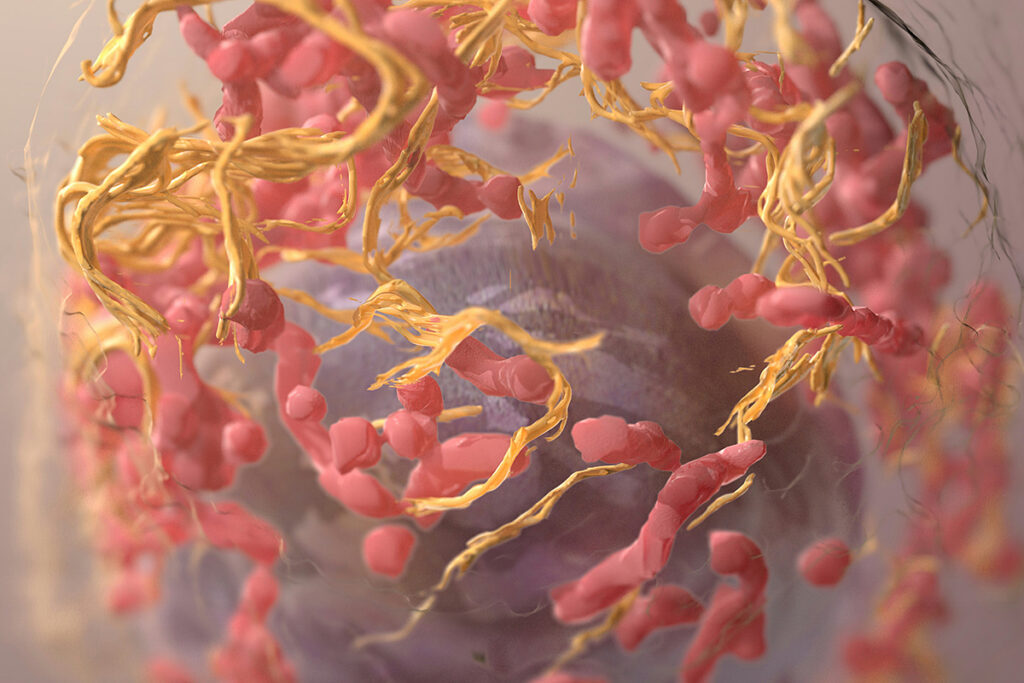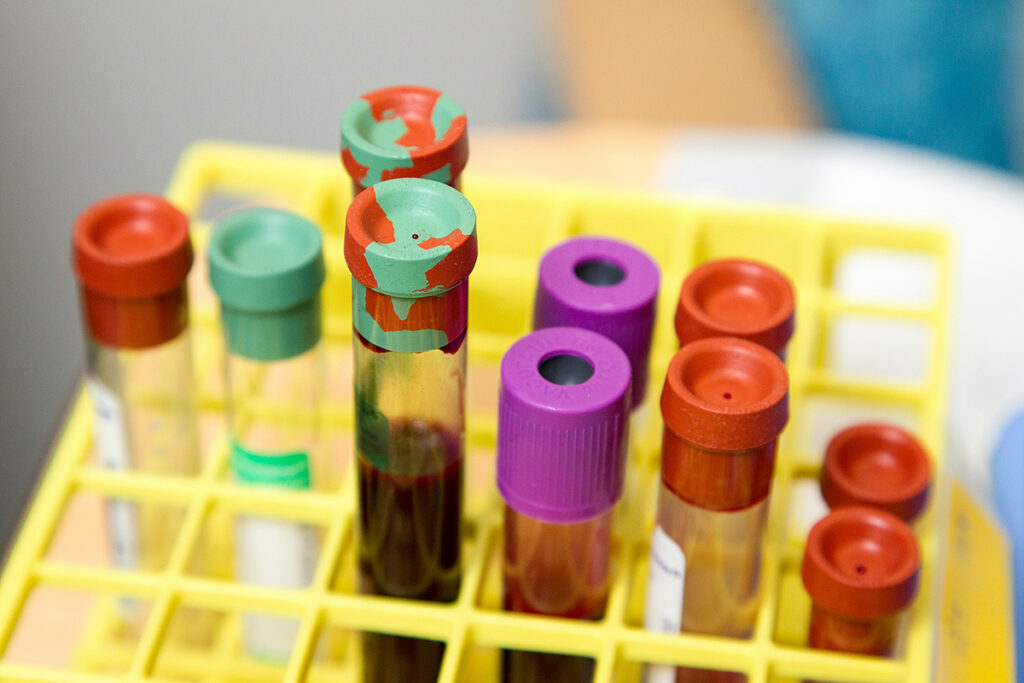Aging is intricately linked to dementia and mild cognitive impairments, serving as an intermediate stage between normal cognitive aging and full-fledged dementia. Dementia symptoms encompass memory decline, impaired thinking, and speech difficulties, along with disruptions in auditory and visual perception, decision-making, and planning.
According to the World Health Organization’s 2019 data, nearly 50 million people worldwide have dementia, a number projected to reach 152 million by 2050. Alzheimer’s disease remains the most prevalent form of dementia.
In 2022, Chinese researchers from the National Clinical Research Center for Geriatrics reviewed aging mechanisms, cognitive disorders, and pharmacological and non-pharmacological interventions for dementia treatment.
Impact of Aging on Cognitive Functions
Aging induces structural changes in the brain, especially in the hippocampus and prefrontal cortex. These changes include reduced neuron count, neurogenesis, dendritic branching, and dendritic spines. Impaired neural excitation transmission and synaptic plasticity contribute to declining memory and learning abilities.
Contributing Factors to Structural and Functional Brain Changes
Several factors contribute to structural and functional brain changes during aging:
- Intracellular accumulation of reactive oxygen species causes cellular and mitochondrial damage.
- Activation of microglia and astrocytes leads to excessive neuroinflammation and subsequent neuron damage.
- Accumulation of beta-amyloid and tau proteins in the brain.
- Decreased levels of neurotrophins are associated with reduced neurogenesis, neuron survival, and synaptic plasticity.
- Brain-derived neurotrophic factor (BDNF) and vascular endothelial growth factor (VEGF) signaling are disrupted and linked to cognitive deficits.
- Reduction in neurotransmitters such as dopamine and serotonin.
Medications for Memory and Attention Improvement in Aging
Only a handful of drugs are approved for enhancing cognitive functions in Alzheimer’s disease, and none are approved for those with mild cognitive impairments due to undesirable side effects such as nausea, vomiting, abnormal dreams, diarrhea, dizziness, bradycardia, fainting, and weight loss.
Acetylcholinesterase Inhibitors (AChEIs)
Neurotransmitter acetylcholine is crucial for memory, learning, and attention. Aging and Alzheimer’s are associated with losing cholinergic receptors binding with acetylcholine. Acetylcholinesterase is an enzyme that breaks down acetylcholine. AChEIs block this enzyme, delaying acetylcholine breakdown and extending its action.
Approved AChEIs for Alzheimer’s disease treatment include:
- Donepezil shows slight cognitive function improvement with a 12-24 week regimen. Higher doses, while more effective, increase the frequency of side effects.
- Rivastigmine, at doses of 6-12 mg per day orally or 9.5 mg per day transdermally, improves cognitive functions in mild and moderate Alzheimer’s cases.
- Galantamine, taken daily at 16-40 mg for 8-28 weeks, significantly improves cognitive functions in Alzheimer’s patients.
For those with mild cognitive impairments, AChEIs do not improve cognitive functions but notably slow dementia progression, as indicated by a 2019 meta-analysis involving 5278 participants.
Memantine and Innovative Approaches for Cognitive Enhancement in Aging
Memantine, an NMDA receptor antagonist, has shown efficacy in treating moderate and severe forms of Alzheimer’s disease, as demonstrated in a comprehensive Cochrane review with nearly 10,000 participants. However, its effectiveness diminishes in cases of mild Alzheimer’s disease.
Antidiabetic Medications: Intranasal Insulin and Metformin
The relationship between diabetes and a 1.5-2 times increased risk of dementia underscores the importance of insulin signaling in cognitive health. Restoring insulin signal transmission in the brain can enhance cognitive functions.
Intranasal Insulin
Intranasal insulin administration elevates insulin levels in the central nervous system, improving cognitive functions. Short-term intranasal insulin at 20 IU enhances verbal memory in elderly individuals with Alzheimer’s disease and moderate cognitive impairments. The effectiveness is influenced by genotype. Continuous intranasal insulin therapy can preserve cognitive abilities and improve long-term memory in Alzheimer’s patients with mild cognitive impairments.
Metformin
As an antihyperglycemic agent, metformin improves insulin sensitivity and suppresses hepatic glucose synthesis. While metformin reduces dementia risk in diabetic patients, its impact on non-diabetic adults remains unproven. Metformin enhances verbal memory in individuals with moderate cognitive impairments, as confirmed by a randomized controlled study involving 80 participants. Metformin is well-tolerated, with a 92.5% incidence of good tolerability and no serious adverse effects. Eight weeks of metformin intake also improves planning and decision-making in individuals with moderate cognitive impairments or mild dementia.
Cerebrolysin
Cerebrolysin, a complex of neuropeptides and amino acids, acts as endogenous neurotrophins. Widely used in Europe and Asia for dementia treatment, Cerebrolysin positively impacts cognitive functions in mild and moderate Alzheimer’s disease and vascular dementia. Its efficacy is comparable to donepezil, and combined therapy proves more effective than single-drug treatment. However, Cerebrolysin’s effects on cognitive functions in healthy elderly individuals and its potential to slow dementia progression remain unknown.
Non-Pharmacological Interventions for Memory and Attention Improvement in Aging
Cognitive-Oriented Interventions
Cognitive training, stimulation, and rehabilitation are employed for preventing and treating mental disorders in the elderly.
- Cognitive Training: Involves solving repetitive standardized tasks aimed at enhancing and maintaining specific cognitive functions. The mechanism of action is associated with neuroplasticity.
- Cognitive Stimulation: Participating in group activities to improve spatial orientation and overall mental status.
- Cognitive Rehabilitation: Trains cognitive abilities necessary for performing individualized tasks, including interactions with the environment, behavior, and daily activities, ultimately reducing disability.
Cognitive training moderately enhances the ability to learn new things and improve speech fluency in mild and moderate dementia. Computerized mental training improves overall cognitive abilities, especially memory, in dementia and moderate cognitive impairment patients, with a twofold increase in effectiveness for those with mild cognitive impairments. Mental stimulation enhances cognitive functions, quality of life, communication, and social interaction in individuals with dementia.
Non-Invasive Brain Stimulation
Primary non-invasive brain stimulation methods include transcranial electrical stimulation (tES) and transcranial magnetic stimulation (TMS), both proven safe and well-tolerated without sedation or anesthesia.
Transcranial Electrical Stimulation
Most researched is direct current tES. Low-intensity electric current (1-2 mA) passes through two electrodes on the scalp—anode and cathode. Depending on the current direction, tES enhances or reduces neuron activity.
- Direct Current tES: Improves cognitive functions in mild and moderate Alzheimer’s patients, with effectiveness observed after a single session. Lower current density (0.06 mA/cm²), but not higher (0.08 mA/cm²), significantly enhances cognitive indicators. Stimulation of the temporal cortex proves most effective.
- Cathodal Direct Current tES: More effectively improves cognitive function than anodal stimulation, specifically in Alzheimer’s patients rather than those with moderate cognitive impairments.
Transcranial Magnetic Stimulation
TMS alters neuron excitability using a magnetic field. Effects depend on stimulation frequency:
- ≤ 1 Hz reduces neuron excitability.
- 5-20 Hz increases neuron excitability.
TMS can be single-pulse, paired-pulse, or repetitive (more than two pulses). Redundant TMS is FDA-approved for treating medication-resistant depression.
High-frequency TMS moderately enhances cognitive functions in Alzheimer’s patients and those with moderate cognitive impairments.
Diet and nutrition
Switching to a healthier diet is good for cognitive performance. Brain health in the elderly is protected by:
- long-chain omega-3 fatty acids;
- vitamin B,
- vitamin D,
The Mediterranean diet is associated with better cognitive abilities and memory. The Mediterranean diet includes a high intake of vegetables, fruits, legumes, olive oil, whole grains, and fish, low to moderate dairy products and alcohol, and limited consumption of red meat.
Emotions, social behavior, and cognitive abilities depend on the intestinal microbiota. A strong effect is observed only in people with cognitive impairment. Numerous human and animal studies have shown that Bifidobacterium and Lactobacillus improve memory and reduce levels of depressive and anxious behavior. The therapeutic effect of single-strain probiotic supplements is more remarkable than multi-strain supplements.
Physical activity
Sport not only improves physical health but also helps maintain cognitive functions. The neuroprotective effect of exercise can be explained by the fact that exercise:
- increase the level of neurotrophins;
- accelerate the process of formation of synapses between neurons;
- improve the appearance of new blood vessels;
- reduce systemic inflammation;
- reduce abnormal beta-amyloid deposition.
A Cochrane review found that aerobic exercise improves cognitive abilities in older adults without cognitive impairment, including motor function, mental speed, and visual attention. In patients with dementia and mild cognitive impairment, aerobic exercise reduces cognitive decline, especially working memory. Moderate to high-intensity aerobic exercise has a better effect on cognitive abilities. For older adults with cognitive impairment, exercise programs of shorter duration and higher frequency may produce the best cognitive results.
Dance
In people with mild cognitive impairment, dance improves attention, short-term and long-term memory, learning new things, visuospatial perception, and planning and making decisions.
In patients with Alzheimer’s disease, dance improves or slows the worsening of neuropsychiatric symptoms and improves the quality of life of patients and their caregivers.
Conclusion
Acetylcholinesterase inhibitors, memantine, intranasal insulin, metformin, probiotics, and cerebrolysin are effective and approved for treating cognitive impairment in older adults.
Cognitive function is also improved by non-pharmacological interventions: cognitive-focused treatment, non-invasive brain stimulation, exercise, and a healthy diet.
A combination of pharmacological and non-pharmacological interventions or various non-pharmacological interventions may provide the most significant benefit for improving and maintaining cognitive function.
Useful article, necessary information? Share it!
Someone will also find it useful and necessary:
Reference
Therapeutic approaches for improving cognitive function in the aging brain



